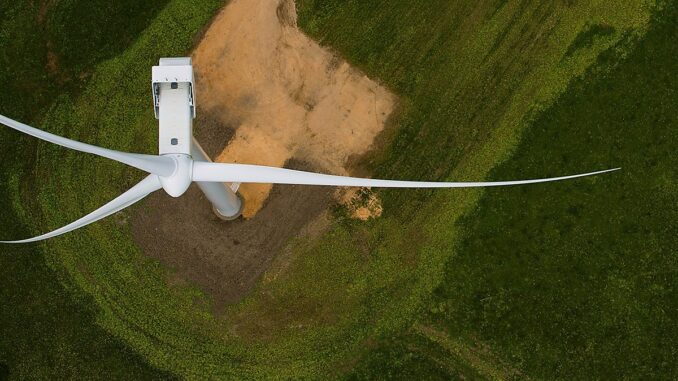
A recent and very long article in The Oregonian titled “How an airborne blade exposed broader problems at PGE’s flagship wind farm” went into considerable detail on the effects of a turbine blade that was spinning and suddenly was launched in the middle of the night plowing a four-foot furrow in the wheat stubble where it landed. The foregoing led to a full shutdown of the 217 wind turbines in the Biglow Canyon by PGE (Portland General Electric) and lots of responses from locals pointing out many other issues associated with those IWT (industrial wind turbines). The article elaborates on six major reported issues which included oil spills, metal debris appearances, etc. etc. and also states, how over the years, those turbines (manufactured by Vestas and Siemens) underperformed in respect to generation they originally promised. The article reports on more unfavourable information about the Vestas turbines versus the Siemens ones but both are criticized. It is somewhat surprising the article does not even mention how those IWT also kills birds and bats or how their associated noises (both high decibel and infrasound) affects humans and animals in a negative way.
Vestas is a company with their head office in Denmark and is touted as the world’s largest supplier of IWT. It may seem oxymoronic to many that Denmark has the highest household electricity prices in the EU currently at “0.3448 euro per kWh”! The prior fact illustrates what many around the world have experienced due to the favourtism, tax dollars and tax benefits accorded companies awarded contracts to erect IWT to save us from “climate change”! The end result of those IWT installations is much higher electricity prices and unreliability due to the intermittent nature of wind versus dependable energy generation from nuclear and fossil fuels!
Interestingly, Vestas was favourably recognized by Corporate Knights of Toronto* in their January 2022 ESG (environmental, social and governance) assessment of 6,914 companies with more than US$1 billion in annual revenues. Corporate Knights ranked Vestas Wind Systems as the world’s most sustainable corporation, granting them as the only company, to achieve an A+ rank! Needless to say Vestas tout that ranking in their 74 page 2021 Sustainability Report stating they were “The most sustainable company in the world”. One should wonder about the qualifications of Corporate Knights staff and their ability to examine those 6,914 companies as it relates to ESG accounting standards. Those ESG accounting standards have been widely criticized as being far too vague as noted in a recent article by Bloomberg.
So, one should wonder did the “top of the heap” award by Corporate Knights spotlighting Vestas ranking higher than the other 6,913 companies provide a benefit to Vestas’s shareholders? The quick answer is no!
If one looks at the Vestas share price on January 3, 2021 it was US$17.23/share but by September 9, 2022 it was US$8.17/share having dropped by 52%. Looking at the share price on the Corporate Knights release date of the “World’s 100 most sustainable corporation” on January 19, 2022, the Vestas share price was US$9.21 but as noted it fell to US$8.17/share by September 9th down by 11.3%.
It seems obvious those involved in investing our funds through assets management companies or private pension plans** are not convinced renewable energy is a sound investment. A recent article notes fossil fuel companies have out performed renewable energy companies by a factor of ten in the current year. Renewable energy companies beat the S & P by an average of 4.3% whereas fossil fuel stocks have outperformed the S & P by an average of 43%.
From all appearances it should be apparent the population who view the possibilities of renewable energy providing the world with all the energy we need are in short supply no matter what Corporate Knights or politicians tell us minions!
*Corporate Knights describe themselves as “The Voice for Clean Capitalism” but seem quite happy to take tax dollars from the Federal Government for their “magazine” as well as obtaining contracts from them to report on “decarbonization trends in Canadian industry sectors”.
**Public pension plans have jumped on board to support renewable energy and have suffered the consequences as pointed out in a recent article about Caisse de Depot and OMERS who took a pounding on just one of their investments.



